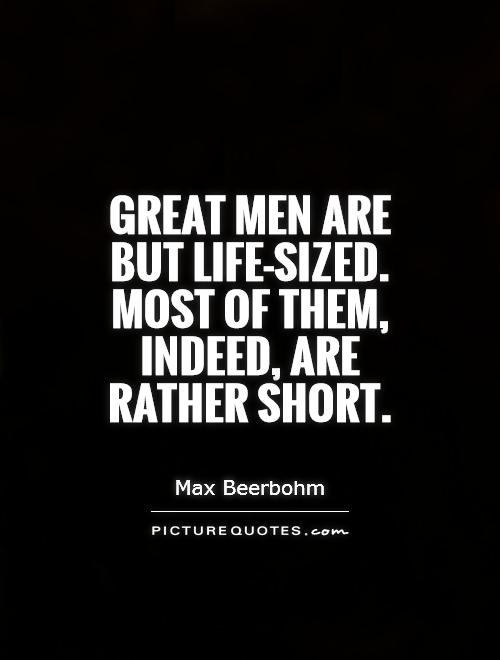Great men are but life-sized. Most of them, indeed, are rather short

Great men are but life-sized. Most of them, indeed, are rather short
Max Beerbohm, a renowned English essayist, humorist, and caricaturist, once famously said, “Great men are but life-sized. Most of them, indeed, are rather short.” This statement by Beerbohm sheds light on the fact that even the most celebrated individuals in history are ultimately human, with flaws and imperfections just like everyone else.Beerbohm's assertion that great men are "life-sized" suggests that they are not larger than life figures, but rather individuals who are subject to the same limitations and vulnerabilities as the rest of us. This idea challenges the notion of hero worship and highlights the importance of recognizing the humanity of those we admire. By acknowledging that even the most accomplished individuals are not infallible, we can gain a more realistic and nuanced understanding of their achievements and contributions.
Furthermore, Beerbohm's observation that most great men are rather short can be interpreted in a metaphorical sense. It suggests that greatness does not necessarily come from physical stature or outward appearance, but from the qualities and actions that define a person's character. In other words, it is not the size of a person that matters, but the impact they have on the world around them.
Beerbohm himself was a prime example of this idea. Despite his relatively short stature, he was a towering figure in the world of literature and art, known for his wit, intelligence, and keen observations of human nature. His essays and caricatures were celebrated for their insight and humor, and he was widely regarded as one of the leading literary figures of his time.












 Friendship Quotes
Friendship Quotes Love Quotes
Love Quotes Life Quotes
Life Quotes Funny Quotes
Funny Quotes Motivational Quotes
Motivational Quotes Inspirational Quotes
Inspirational Quotes